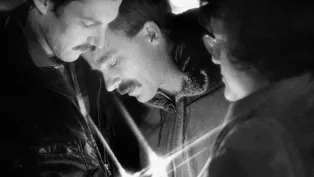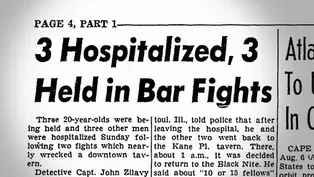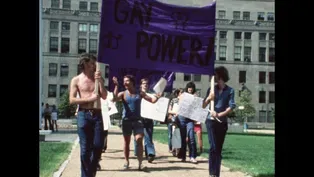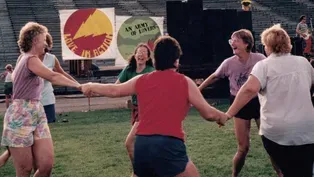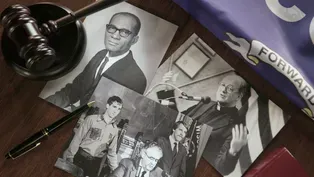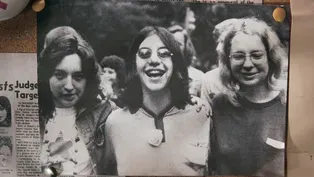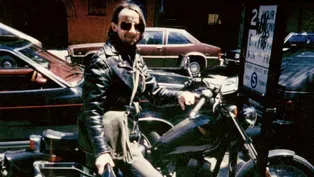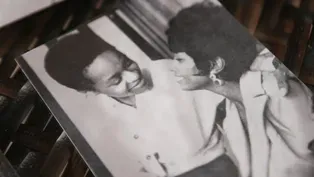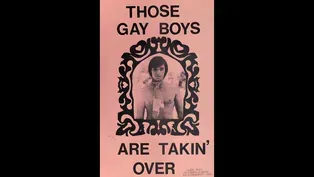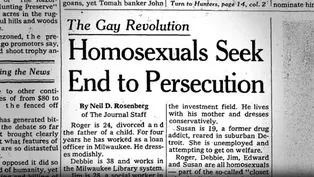Wisconsin Pride
Bars
Clip: Special | 2m 9sVideo has Closed Captions
Gay bars once were the only place you could be gay, and it was still risky.
Tavern culture is firmly established in Wisconsin. Often particular bars served groups of like-minded socially-connected people. For example, German immigrants or African Americans found places to be with one another. LGBTQ+ people similarly sought space to be themselves, together. While community was created there, a wary eye always watched the door for a police raid or homophobic troublemakers.
Problems with Closed Captions? Closed Captioning Feedback
Problems with Closed Captions? Closed Captioning Feedback
Wisconsin Pride is a local public television program presented by PBS Wisconsin
Funding for Wisconsin Pride is provided by Park Bank, SC Johnson, the Greater Milwaukee Foundation, the Evjue Foundation, the charitable arm of the Capital Times, TruStage, the New Harvest Foundation,...
Wisconsin Pride
Bars
Clip: Special | 2m 9sVideo has Closed Captions
Tavern culture is firmly established in Wisconsin. Often particular bars served groups of like-minded socially-connected people. For example, German immigrants or African Americans found places to be with one another. LGBTQ+ people similarly sought space to be themselves, together. While community was created there, a wary eye always watched the door for a police raid or homophobic troublemakers.
Problems with Closed Captions? Closed Captioning Feedback
How to Watch Wisconsin Pride
Wisconsin Pride is available to stream on pbs.org and the free PBS App, available on iPhone, Apple TV, Android TV, Android smartphones, Amazon Fire TV, Amazon Fire Tablet, Roku, Samsung Smart TV, and Vizio.
♪ ♪ - Dick Wagner: Taverns are ubiquitous in Wisconsin.
- Michail Takach: Wisconsin really was a breeding ground for bars of all different kinds.
There were bars that were Serbian.
There were bars that were African American.
There were bars that were Polish.
So, the idea of there being bars dedicated to gay people shouldn't be surprising to anyone.
- In the post-World War II era, gay bars began to find a footing among a booming population.
Though intense secrecy surrounded their existence, they started to play a pivotal role in LGBTQ+ lives.
- Michail Takach: They went there to find community.
They went there to find love.
They went there to find hope.
- Víctor Macías-González: You make friends, develop networks, and gradually begin to develop knowledge of what the gay world is.
- Dick Wagner: About the only place you could actually be gay since you had to be straight at work and in your family was at a gay bar.
- The bars themselves kept a low profile, hoping to avoid attention from the police.
- Víctor Macías-González: It's almost like a holdover from the speakeasy culture.
It won't be marked.
Right?
The entrance is in the back.
If they don't recognize you, they won't let you in sort of a thing.
- Dick Wagner: It was not uncommon for police raids to occur in gay bars.
[police sirens] The enforcement of norms and homophobia was a routine activity in those days.
- The police could carry out genital searches.
Same-sex dancing could lead to an arrest.
And bar owners could lose their license if caught serving homosexuals.
- Michail Takach: The consequences were really extreme, and people still dared to live their best life.
They still went out looking for each other, eager to find each other in a world that was actively trying to shut them down.
Video has Closed Captions
Clip: Special | 5m 57s | Responding to the AIDS pandemic took political will and new social action led by ACT-UP. (5m 57s)
Video has Closed Captions
Clip: Special | 4m 46s | Years before Stonewall, a Milwaukee bar’s patrons fought back against homophobic attacks. (4m 46s)
Video has Closed Captions
Clip: Special | 2m 19s | Gay Peoples Union nurtured LGBTQ+ life in 1970s Milwaukee. (2m 19s)
Gay Press and Leaping La Crosse News
Video has Closed Captions
Clip: Special | 5m 27s | A diverse gay press united LGBTQ+ people. La Crosse had its own lesbian newsletter. (5m 27s)
Video has Closed Captions
Clip: Special | 11m 6s | Wisconsin led the nation in enacting anti-discrimination laws for gays and lesbians. (11m 6s)
Video has Closed Captions
Clip: Special | 5m 2s | The nation’s first out lesbian candidate for office ran to protest anti-LGB school policy. (5m 2s)
Video has Closed Captions
Clip: Special | 4m 58s | A trans-pioneer from Wauwatosa, WI, Lou Sullivan helped others to live as themselves. (4m 58s)
Video has Closed Captions
Clip: Special | 5m 25s | Milwaukee lesbian couple sought marriage equality in the Seventies. (5m 25s)
Video has Closed Captions
Clip: Special | 2m 37s | The Madison Alliance for Homosexual Equality was Wisconsin’s first LGBTQ+ advocacy group. (2m 37s)
Preview: Special | 30s | Remarkable stories of fighting injustice define a pivotal LGBTQ+ era in Wisconsin. (30s)
Providing Support for PBS.org
Learn Moreabout PBS online sponsorshipSupport for PBS provided by:
Wisconsin Pride is a local public television program presented by PBS Wisconsin
Funding for Wisconsin Pride is provided by Park Bank, SC Johnson, the Greater Milwaukee Foundation, the Evjue Foundation, the charitable arm of the Capital Times, TruStage, the New Harvest Foundation,...
